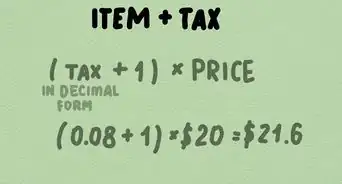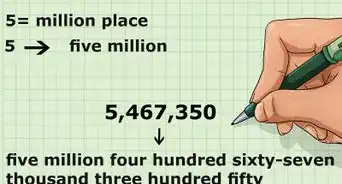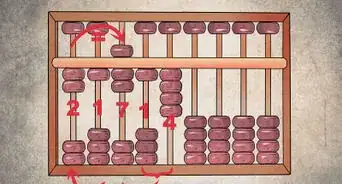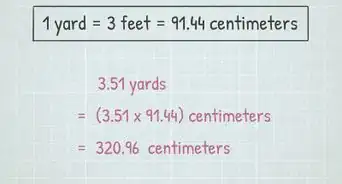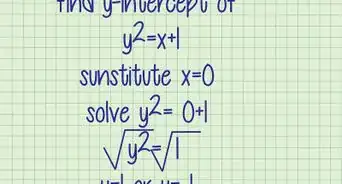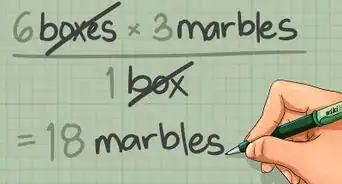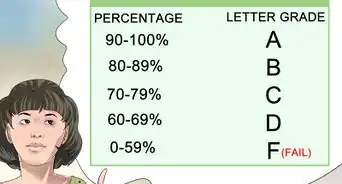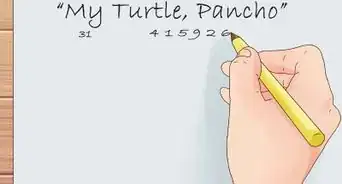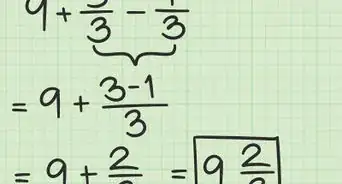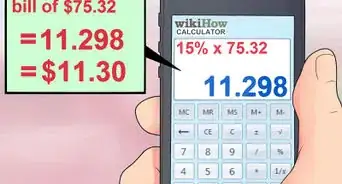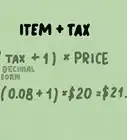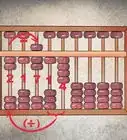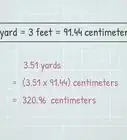This article was co-authored by Sean Alexander, MS. Sean Alexander is an Academic Tutor specializing in teaching mathematics and physics. Sean is the Owner of Alexander Tutoring, an academic tutoring business that provides personalized studying sessions focused on mathematics and physics. With over 15 years of experience, Sean has worked as a physics and math instructor and tutor for Stanford University, San Francisco State University, and Stanbridge Academy. He holds a BS in Physics from the University of California, Santa Barbara and an MS in Theoretical Physics from San Francisco State University.
This article has been viewed 15,863 times.
Pretty much everybody dislikes math class. Let's face it—the teacher goes on talking and all the students are finding ways to have more fun. Though sometimes math class can seem like something just to get out of, it's actually possible to enjoy math. Whether you're a student who wants to learn how to enjoy math or a parent who wants to help your child enjoy math, we've got tips on how you can actually make math fun.
Steps
Having Fun
-
1Make discoveries in math. It may seem like only high-tech and heavily-educated people can make discoveries, but you can too! Try doing some math problems and seeing if you can find a deeper meaning behind them.
- For example, if you're learning to translate binary to base-10 number systems, understand the deeper meaning of binary. Here, it would be to learn how to translate binary to letters and characters.
-
2Find your own ways of solving problems. Before looking at the answer key or textbook for help, think and invent your own ideas. Who knows; maybe it will work! Go all out. Doing this will build your understanding of math and will also allow some fun in your studying time.
- For example, for quadratic equations, you can look into them to find more ways to solve them.
- Do this with a rich concept at first to find more discoveries.
- Don't give up. Remember—your mind is just as powerful as anyone else's.
Tip: Think about how something works and try to find a different viewpoint to it. For example, think about how some formulas work.
Advertisement -
3Connect math with the real world.[1] For example, if you just learned the volume formula of a torus (a donut-shaped object), try implementing it. Next time you go to the bakery, try finding the volume of a donut! The only reason why we learn math is to use it in the real world.
- Know that math guides the way to harder concepts.
-
4Learn about how other people made breakthroughs in the real world using math. This can inspire you to do the same. Literally, everything requires math. From the correct area of the walls to building a house shown on a scale map, everything requires math to do.[2]
- Try sketching a model in scale and building it using proportions!
-
5Play math games. This is a great way to develop your skills and have fun while honing your skills. Try out free games first and look for insights in the games. Who knows, you might discover something!
-
6Pay attention more in math class. Yes, it's obvious that most people just don't want to do math, but you have to open your mind to new possibilities. Listening and interacting in your math class will help your skills and help you discover more.
- Raise your hand and get out of your comfort zone.
- Don't be afraid to get things wrong! It's the only way you'll learn.[3]
-
7Learn new things. Expanding your knowledge can really help out with enjoying math. You'll feel a sense of accomplishment and will want to learn more! Just go ahead and try—you might like it!
- Try to learn in a fun way.
-
8Love the immensity and challenge of math. Many people don't like math because it's too hard for them. They think they'll never succeed in math because it's too hard. For people who love math though, the challenge is what motivates them! Think on the other side of the coin.[4]
- For example, if you like math, you'll love how much there is to learn and discover.
- It's like going to a new place—there are endless things to discover!
-
9Understand math. Instead of memorizing complex formulas, understand why they work. This will help you learn math in an easier way, therefore lessening the stress, and improves your logic and thinking process.
- Try to find the reason for everything in math.
-
10Learn different branches of math. Just because you aren't fond of one branch of math doesn't mean you won't like another! Try out different types of math, such as algebra or trigonometry. See which you enjoy!
-
11Solve interesting problems. Often the way people suddenly like math is because the problems they do are interesting and challenging. It's rich in concepts and you'll need to understand math to do it. For example, often these problems make you come up with your own formulas.
- MATHCOUNTS and AMC 8 have lots of interesting problems you can do. Try them, along with other contest problems.
-
12Celebrate Pi Day. March 14th can be recognized as a fun math holiday. The date, 3/14, relates to the irrational number, pi (approximately 3.14). Try calculating pi on your own or memorizing digits. You can even eat pi-related foods, such as pizza pies or pumpkin pie.
Connecting with Other Like-Minded People
-
1Join a math live stream. Many channels offer live streams about math, and it's a great resource you can use. You may discover new things and get to interact with other people who like math! Share your insights and read others' too.
- Try to find a live stream at your level of math. For example, if you're in middle school, don't go to university live streams.
-
2Go to the forums of a math website. Online websites for learning math can offer a forum area where you can get help with problems and chat! Some websites even have forum games.
- Make sure to stay safe online.
-
3Learn math online. There are many websites that offer math contests, courses, and learning materials. Try out the free materials first and see what you like. Try out different things and see what you like!
- If you want to make math fun, try out a game-like website. For example, you could earn XP or points for completing videos/lessons. This can encourage you to do more.
-
4Join a weekend math school. This may sound weird, as why would you want more work? But, if you like math and actually enjoy it, going to math school on weekends will help you to hone your math skills. You'll enjoy it even more and learn more.
- If you're ahead of your grade, consider going to a math school a grade higher.
- If it feels like a burden, then consider going to another math school.
Expert Q&A
Did you know you can get expert answers for this article?
Unlock expert answers by supporting wikiHow
-
QuestionHow can I motivate myself to study?
 Sean Alexander, MSSean Alexander is an Academic Tutor specializing in teaching mathematics and physics. Sean is the Owner of Alexander Tutoring, an academic tutoring business that provides personalized studying sessions focused on mathematics and physics. With over 15 years of experience, Sean has worked as a physics and math instructor and tutor for Stanford University, San Francisco State University, and Stanbridge Academy. He holds a BS in Physics from the University of California, Santa Barbara and an MS in Theoretical Physics from San Francisco State University.
Sean Alexander, MSSean Alexander is an Academic Tutor specializing in teaching mathematics and physics. Sean is the Owner of Alexander Tutoring, an academic tutoring business that provides personalized studying sessions focused on mathematics and physics. With over 15 years of experience, Sean has worked as a physics and math instructor and tutor for Stanford University, San Francisco State University, and Stanbridge Academy. He holds a BS in Physics from the University of California, Santa Barbara and an MS in Theoretical Physics from San Francisco State University.
Academic Tutor
-
QuestionHow can I get better at math if I don't like it?
 Sean Alexander, MSSean Alexander is an Academic Tutor specializing in teaching mathematics and physics. Sean is the Owner of Alexander Tutoring, an academic tutoring business that provides personalized studying sessions focused on mathematics and physics. With over 15 years of experience, Sean has worked as a physics and math instructor and tutor for Stanford University, San Francisco State University, and Stanbridge Academy. He holds a BS in Physics from the University of California, Santa Barbara and an MS in Theoretical Physics from San Francisco State University.
Sean Alexander, MSSean Alexander is an Academic Tutor specializing in teaching mathematics and physics. Sean is the Owner of Alexander Tutoring, an academic tutoring business that provides personalized studying sessions focused on mathematics and physics. With over 15 years of experience, Sean has worked as a physics and math instructor and tutor for Stanford University, San Francisco State University, and Stanbridge Academy. He holds a BS in Physics from the University of California, Santa Barbara and an MS in Theoretical Physics from San Francisco State University.
Academic Tutor Think about what you are passionate about. Take that answer and try to see how math is relevant to that. For example, let's say you love history but don't like math. In terms of history, where do you think humans would be if they never figured out math? Try to wrap what you like into the subject to make it more interesting.
Think about what you are passionate about. Take that answer and try to see how math is relevant to that. For example, let's say you love history but don't like math. In terms of history, where do you think humans would be if they never figured out math? Try to wrap what you like into the subject to make it more interesting. -
QuestionHow can I understand a difficult math problem?
 Sean Alexander, MSSean Alexander is an Academic Tutor specializing in teaching mathematics and physics. Sean is the Owner of Alexander Tutoring, an academic tutoring business that provides personalized studying sessions focused on mathematics and physics. With over 15 years of experience, Sean has worked as a physics and math instructor and tutor for Stanford University, San Francisco State University, and Stanbridge Academy. He holds a BS in Physics from the University of California, Santa Barbara and an MS in Theoretical Physics from San Francisco State University.
Sean Alexander, MSSean Alexander is an Academic Tutor specializing in teaching mathematics and physics. Sean is the Owner of Alexander Tutoring, an academic tutoring business that provides personalized studying sessions focused on mathematics and physics. With over 15 years of experience, Sean has worked as a physics and math instructor and tutor for Stanford University, San Francisco State University, and Stanbridge Academy. He holds a BS in Physics from the University of California, Santa Barbara and an MS in Theoretical Physics from San Francisco State University.
Academic Tutor
References
About This Article
Learning math can be hard, but it doesn’t have to be boring! To have more fun doing math, look for ways to challenge yourself. For example, you might try finding a new way to solve a problem or thinking of ways to connect what you’re learning to real life. Play math games online to sharpen your skills in a fun and exciting way. Math is more fun and interesting when you understand it better, so make an effort to participate in class and ask lots of questions. Branch out with your learning and study different types of math, like algebra, geometry, or calculus, to figure out which one you like best. Scroll down for more expert advice, like how to find math study partners.

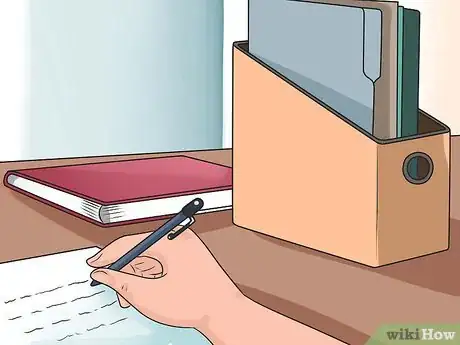



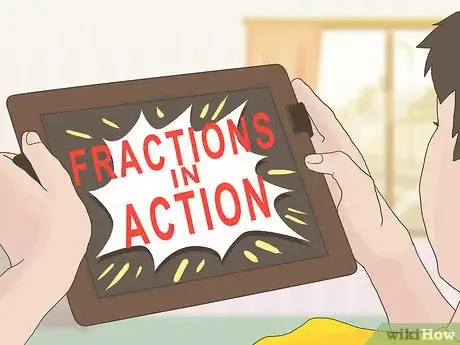






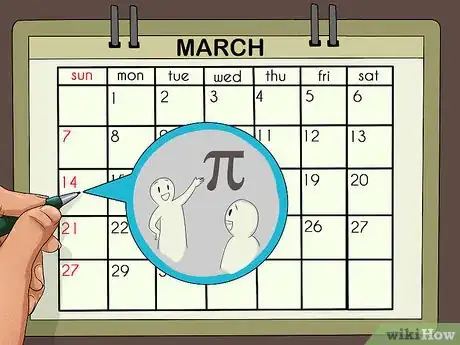
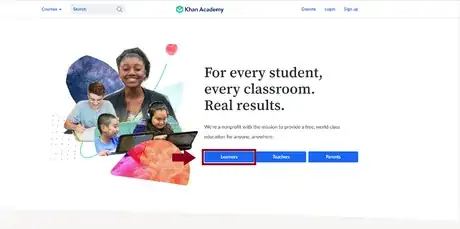
-Step-1.webp)

